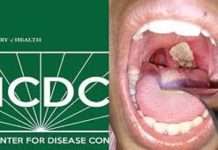Sequel to the results of the new survey on the prevalence of HIV in Nigeria, which puts the figure at 1.4 percent among adults aged 15–49 years, a team of local and international scientists have embarked on a research to determine the best approaches in preventing the spread of HIV among Nigerian youths, and also to achieve the UNAIDS 90-90-90 target by 2020.
The team made up of principal investigators including Dr Oliver Ezechi, from the Nigerian Institute of Medical Research (NIMR); Dr Juliet Iwelunmor, from the University of North Carolina at Chapel Hill; and Dr Joseph Tucker, from Saint Louis University, observed that there is a gap in youths showing up for HIV testing at clinics, thus, they set up a programme tagged “4 Youth by Youth: Designathon 2019”, to bridge the gap, by getting youths involve in the creation of innovative products, services, and technologies for the expansion of HIV self-testing in Nigeria.

The 3-day programme, which commenced on Friday, 29 March 2019, will be brought to an end on Sunday, 1 April 2019, at the Digital Training Centre, FIIRO Road, Oshodi, Lagos.
Speaking on the objectives of the programme, Dr Ezechi said, although HIV prevalence has drastically dropped in the country, with the recent statistics released, but it is not yet uhuru, as the rate of testing is still very low among young persons.
“If actually, we want to achieve the USAIDS 90-90-90 target for reducing HIV, what it means is that the first 90 is 90 percent of people having HIV showing up, and the retry point for that is testing and counselling, and young people are not showing up because of stigmatisation.

“What we are doing today is to bring up a competition among selected young persons between the ages of 14-24, to tell us the best strategy to adopt in getting their peers come for HIV self-testing, which can be done within the confines of their homes”, he explained.
Speaking further on the study titled “Innovative tools to expand HIV self-testing”, Dr Iwelunmor revealed that their goal is to work with Nigerian youths to expand HIV oral self-testing in Nigeria. “The data basically says I in 5 youths has never got tested for HIV, and our goal is to say that everyone should know their status, and one-way they can easily do this is trough HIV self-testing”.
She said the beauty of the research is that they don’t want to tell youths to go testing, but they want youths to come up with ideas they think are innovative, low-cost, and appealing to their fellow youths, to make them go self-testing.

She explained that they opened entry for the competition since January, called for youths to submit their ideas on expanding HIV testing, and at the end of the day, they got 127 candidates, and finally selected 13 for the competition.
“After this competition, they will move to the next level of the programme which is entrepreneurship, where we will work with them for almost a month, and thereafter, they will essentially become youths entrepreneurs for HIV self-testing in Nigeria”, she stated.
Dr Tucker, who is an infectious diseases physician, said they are really building a movement with the competition, because at the end of the Designathon, they will not be too keen about winners or losers, “but we want all the young people to walk away with the notion that their ideas matter, and small groups will be chosen to get apprenticeship and build capacity for their ideas to be implemented.
“Other groups might volunteer otherwise help connect at the NIMR’s HIV clinic, which runs every second Saturday of every month. So this is another way of getting young people engage, not just during the Designathon, but after the Designathon”, He quipped.










